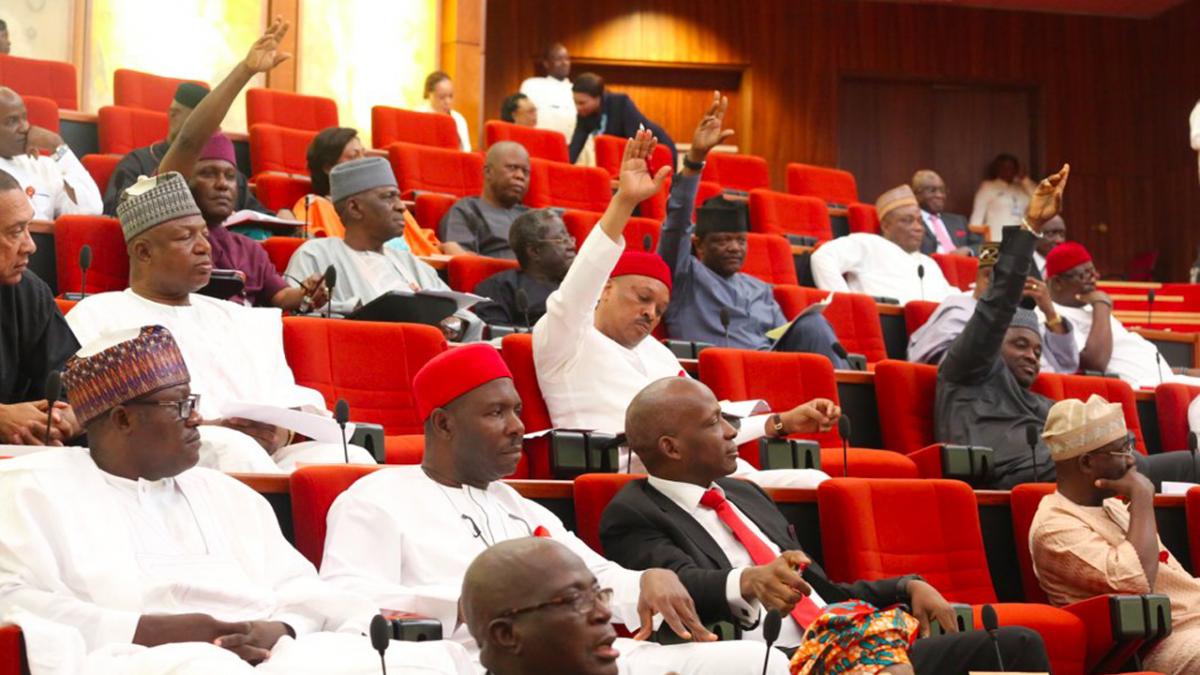There are no products in your shopping cart.
| 0 Items | £0.00 |


NIGERIAN senators are courting fresh controversy in the petroleum industry after the amendment of a bill to include several non-oil producing states to the Niger Delta Development Commission (NDDC) scaled its second reading today.
Highly divisive, the amendment titled A Bill for an Act to Amend the Niger Delta Development Commission Act No 6, 2000 and for Other Related Matters Connected Therewith, 2021, was sponsored by Senator Adeola Olamilekan representing Lagos West Senatorial District. It seeks to include Kogi, Lagos, Anambra, Bauchi and Gombe to the list of NDDC states.
Senator Olamilekan submitted that the NDDC Act was activated over 21 years ago and since then, oil and gas have been discovered in Lagos, Kogi, Anambra, Gombe, Bauchi and other states, hence, the amendment would offer an opportunity for the act to capture peculiarities of the new oil states. Senator Ahmad Baba Kaita representing Katsina North Senatorial District, supported the amendment proposal.
He said: “Regarding the motion on the oil-producing States, I think what is good for the goose is good for the gander. In a state like Borno, where oil has been discovered, I remember the former group managing director of the Nigerian National Petroleum Corporation arguing here that with such states coming on board, Nigeria will be one of the largest oil producers if we harness our resources.
“In this case, it is only fair for us to consider those states that produce oil because the exploration is going to affect the environment. The idea behind that motion is consequences of oil exploration.”
However, Senator George Sekibo representing Rivers East Senatorial District, urged senators to treat the amendment with caution. He advised lawmakers to find out if those states have started contributing to the federation account through their oil, adding that exploration in commercial quantities was precedent since the derivation sharing was based on the quantity of oil produced
Senator Sekibo said: “Mr President, I congratulate these states where they said they have discovered oil. What I want to know is whether they are of commercial quantity and whether they are being drilled out now and is the money going into the federal government account.
“We have not confirmed that one yet but as oil has been discovered there, we want the oil to come out of every soil in Nigeria. Are they exploring the oil? Are they refining oil there and has oil caused devastation in those states."
Senator Mathew Uroghide representing Edo North Senatorial District disagreed with the proposed amendment completely, stating that the NDDC Act was specifically meant to address environmental degradation of the Niger Delta region. According to him, the inclusion of some northern oil states in the act will defeat the original intention of the bill.
He said: “I am not particularly against the sponsor of the bill but I feel the bill must be properly presented. Let’s start with the name Niger Delta Development Commission, as today, the area that is referred to as Niger Delta is very clear and the states that make up the Niger Delta region that the commission is serving is very clear.
“Senator George Thompson Sekibo just mentioned the 13% derivation which each oil-producing states get, is a function of oil production. Oil production in Gombe and Bauchi and other northern states are already coming to a reality but to take these states as the Niger Delta is not right.
"However, if there is any percentage for states that produce oil, be it Sokoto or be it Borno, of course, they should benefit but that does not make them part of Niger Delta. To say other states are part of the Niger Delta makes a mockery of the original idea of the NDDC Act as the NDDC was created as an intervention to mediate in the degradation of the environment due to oil exploration.”
After further contributions, senate president, Senator Ahmad Lawan put the bill to voice votes and it scaled the second reading. A public hearing is now expected to be conducted for a wider consultation preparatory for its final passage into law.